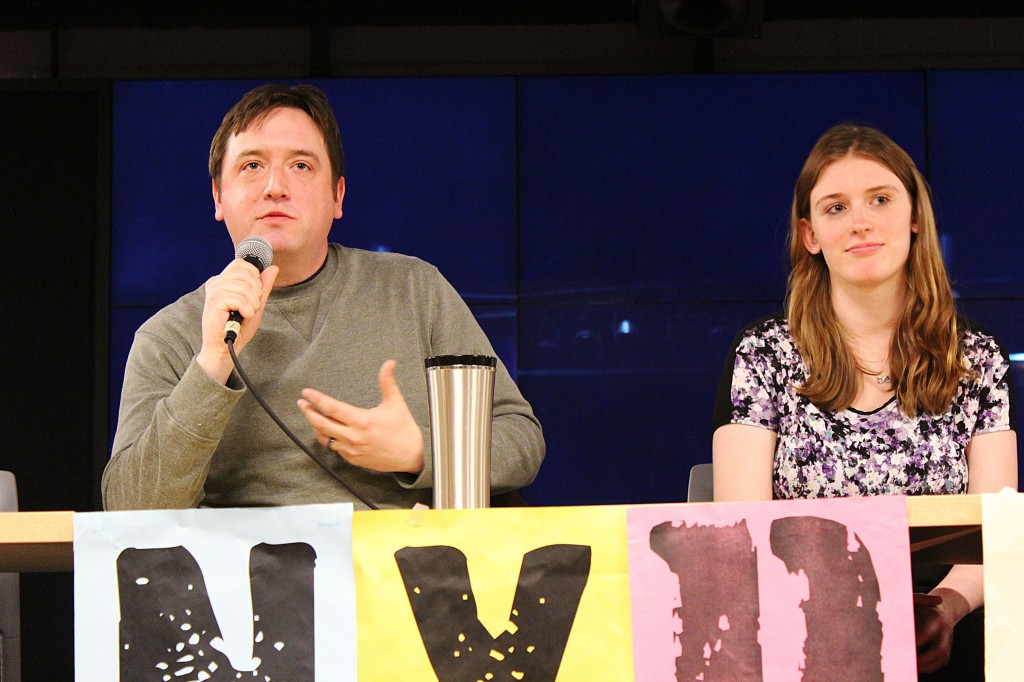
Despite the long, grueling winter Binghamton University students faced, 2014 was globally the hottest recorded year in history. On Wednesday night, BU’s New York Public Interest Research Group (NYPIRG) hosted the Earth on Fire event in the Undergrounds to discuss global climate change.
BU environmental studies professor Richard Andrus spoke at the Earth Day event about the effects of temperature increase. Climate change can cause both the melting of Arctic sea ice and ocean acidification, which occurs when oceans become more acidic from dissolved carbon dioxide. This can lead to coastal flooding and can harm shell growth in marine animals.
Robert Holahan, a professor from the environmental studies department, spoke at the event and explained the difficulties of getting people involved in the politics of climate change.
“We have to be able to incentivize people on the micro-scale in order to actually change day-to-day choices,” Holahan said. “It’s a bunch of small decisions made at local levels that go upwards.”
Other speakers included BU economics professor Kenneth Christianson and NYPIRG intern Lauren Birck. Christianson talked about the United States’ ecological footprint, stating that the average person in the world uses 4.5 acres of land compared to the average 24.5 acres for the average U.S. citizen.
According to Andrus, the emission of more gases causes a rise in temperature as even more heat is trapped, a concept often known as the greenhouse effect. Andrus discussed how methane gases are released from melting permafrost, which causes a massive output of methane into Earth’s atmosphere. The methane, in turn, heats the atmosphere and melts the permafrost, which releases more methane in a cycle.
“The more methane that goes into the atmosphere, the more the atmosphere eats up, the more permafrost melts,” Andrus said. “This is the kind of roulette we’re playing with planetary health.”
Birck, a sophomore double-majoring in environmental studies and geography, spoke about New York State’s Reforming the Energy Vision (REV) proposal.
Initiated by Governor Andrew Cuomo, REV seeks to reform New York’s energy industry and regulatory practices to transform the way energy is used within the state. This includes creating smaller power plants and significantly reducing greenhouse gases.
“The world’s experts agree that global warming is largely due to human activity,” she said. “New York is not only contemplating how to respond to climate change dangers, it is also trying to move its energy system into the digital age.”
As part of the initiative, the Public Service Commission is accepting questions and comments which they are obligated to read and respond to. Ayla Alvarez, a senior majoring in environmental studies and the vice president of NYPIRG, said it was important for students to know that they can make a difference.
“Your comment, no matter what you write, will influence their decision,” Alvarez said. “I hope that’s a major takeaway for students and that they realize that important legislation like this can actually be affected by them.”


